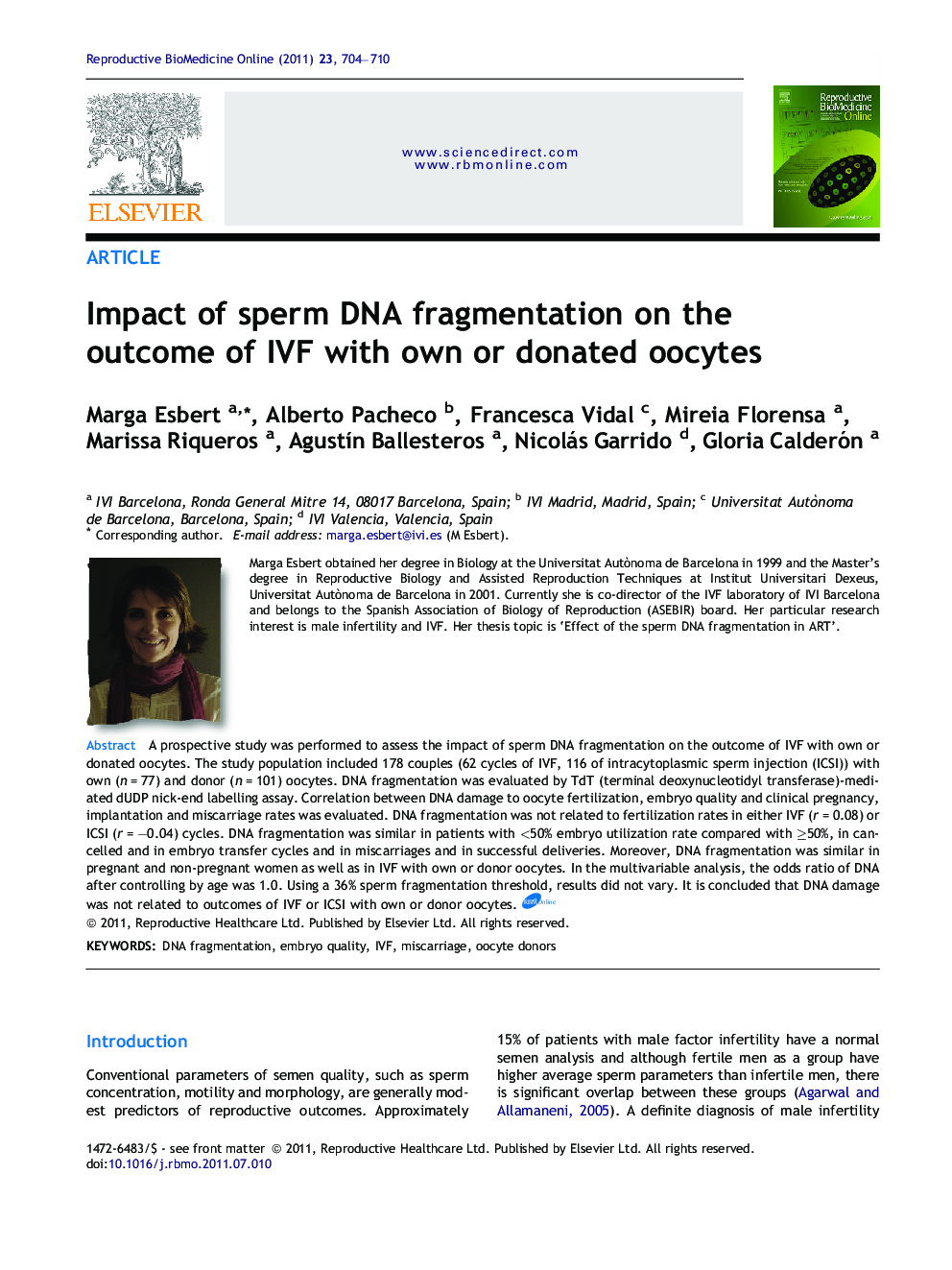| Article ID | Journal | Published Year | Pages | File Type |
|---|---|---|---|---|
| 3971225 | Reproductive BioMedicine Online | 2011 | 7 Pages |
A prospective study was performed to assess the impact of sperm DNA fragmentation on the outcome of IVF with own or donated oocytes. The study population included 178 couples (62 cycles of IVF, 116 of intracytoplasmic sperm injection (ICSI)) with own (n = 77) and donor (n = 101) oocytes. DNA fragmentation was evaluated by TdT (terminal deoxynucleotidyl transferase)-mediated dUDP nick-end labelling assay. Correlation between DNA damage to oocyte fertilization, embryo quality and clinical pregnancy, implantation and miscarriage rates was evaluated. DNA fragmentation was not related to fertilization rates in either IVF (r = 0.08) or ICSI (r = −0.04) cycles. DNA fragmentation was similar in patients with <50% embryo utilization rate compared with ⩾50%, in cancelled and in embryo transfer cycles and in miscarriages and in successful deliveries. Moreover, DNA fragmentation was similar in pregnant and non-pregnant women as well as in IVF with own or donor oocytes. In the multivariable analysis, the odds ratio of DNA after controlling by age was 1.0. Using a 36% sperm fragmentation threshold, results did not vary. It is concluded that DNA damage was not related to outcomes of IVF or ICSI with own or donor oocytes.Any form of sperm chromatin abnormalities or DNA damage may result in male infertility. The study of sperm DNA damage is especially relevant in an era in which advanced forms of assisted reproductive technologies are frequently used and in which barriers to natural selection are bypassed. A prospective study was carried out with the aim of assessing the impact of sperm DNA fragmentation on the outcome of IVF with own or donated oocytes. We studied 178 couples undergoing 62 cycles of IVF and 116 of intracytoplasmic sperm injection (ICSI) with own (n = 77) and donor (n = 101) oocytes. DNA fragmentation was evaluated by TdT (terminal deoxynucleotidyl transferase)-mediated dUDP nick-end labelling assay. Oocyte fertilization, embryo quality and pregnancy, implantation and miscarriage rates were correlated with DNA damage. DNA fragmentation was not related to fertilization rates in either IVF (r = 0.08) or ICSI (r = −0.04) cycles. DNA fragmentation was higher in patients with <50% of good-quality embryos than with ⩾50%, in cancelled than in embryo transfer cycles and in miscarriages than in successful deliveries. DNA fragmentation was similar in pregnant and non-pregnant women as well as in IVF with own or donor oocytes. In the logistic regression analysis, the odds ratio of DNA after controlling by age was 1.0. Using a 36% sperm fragmentation cut-off point, results did not vary. According to these findings, it can be concluded that DNA damage was not related to outcomes of IVF or ICSI with own or donor oocytes.
